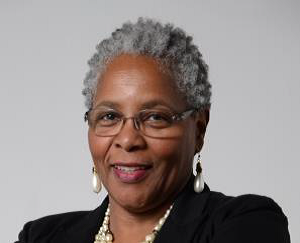The University of Tennessee Health Science Center (UTHSC) will host more than 100 juvenile justice officials, mental health professionals, legislators and community leaders at a conference capping a two-year, statewide study aimed at developing better procedures for helping young people with behavioral disorders stay out of the juvenile justice system.
The conference, the final meeting of the Mental Health-Juvenile Justice Policy Academy Action Network, will be held from 9 a.m. to 1 p.m. Feb. 8 in the Student Alumni Center, 800 Madison Avenue. Chaired by Altha Stewart, MD, associate professor in the Department of Psychiatry in the College of Medicine at UTHSC, the summit will present findings of the study that began in 2014 to look at improving services and support across Tennessee for youth with behavioral health needs who become involved in the juvenile justice system.
The study identified current procedures and resources in the state, and in Shelby County in particular, as a first step toward improving screening, diagnosis and mental health treatment for those ages 12-18 with the mental health issues — ADHD, bipolar disorder, depression, suicidal thoughts, anxiety disorder — that so often land them in the system. Identifying and treating these issues could keep them out of the system in the future, said Dr. Stewart, who led the study funded with a grant from the John D. and Catherine T. MacArthur Foundation and the Substance Abuse and Mental Health Services Administration.

“For the child, getting services that will address their mental health needs gives them a better quality of life, we hope, but also it gives them an opportunity to change the trajectory of their future,’’ Dr. Stewart said. “If we address that mental health need, perhaps we can do some things to change those behaviors for the better.”
At least 60 percent of children in Shelby County who come into the justice system have a diagnosable mental disorder and need additional mental health services, Dr. Stewart said. That number is consistent with national data about young people in the juvenile justice system. “These kids, once screened and identified, could be referred for specific mental health services in the community.”
It’s unlikely such young people would end up in detention or long-term care initially, but without proper screening, they may not be identified or get the treatment that could keep them from detention in the future.
A psychiatrist, Dr. Stewart was recruited to UTHSC in 2015 from the Shelby County Public Defender’s Office to set up a new Center for Health in Justice-Involved Youth in the College of Medicine. The Center will work to reduce the large number of young people involved in the juvenile justice system in Shelby County, starting with developing better interventions to meet their mental health needs. It is one of several new Centers of Excellence being established at UTHSC through the College of Medicine to tackle the most pressing health needs in our community.
The summit will discuss recommendations from the study including:
- Convening cross-system service planning meetings to review complex cases and identify appropriate community based mental health services and supports.
- Encouraging use of screening tools and family engagement to support getting youth with behavioral health disorders into appropriate services.
- Continuing the statewide collaboration and training for court and behavioral health personnel regarding the importance of creating diversion opportunities.
“Children who are behaving in a certain way because of mental health issues, when we deal with the mental health issues, may not cause the level of concern around public safety,” Dr. Stewart said. “There’s no guarantee, but at least we’ve got a shot at intervening and giving them some options.”
